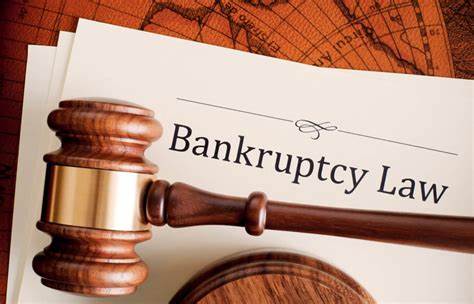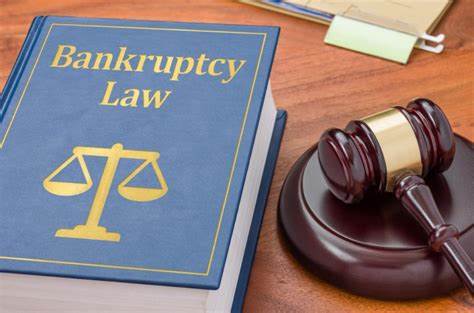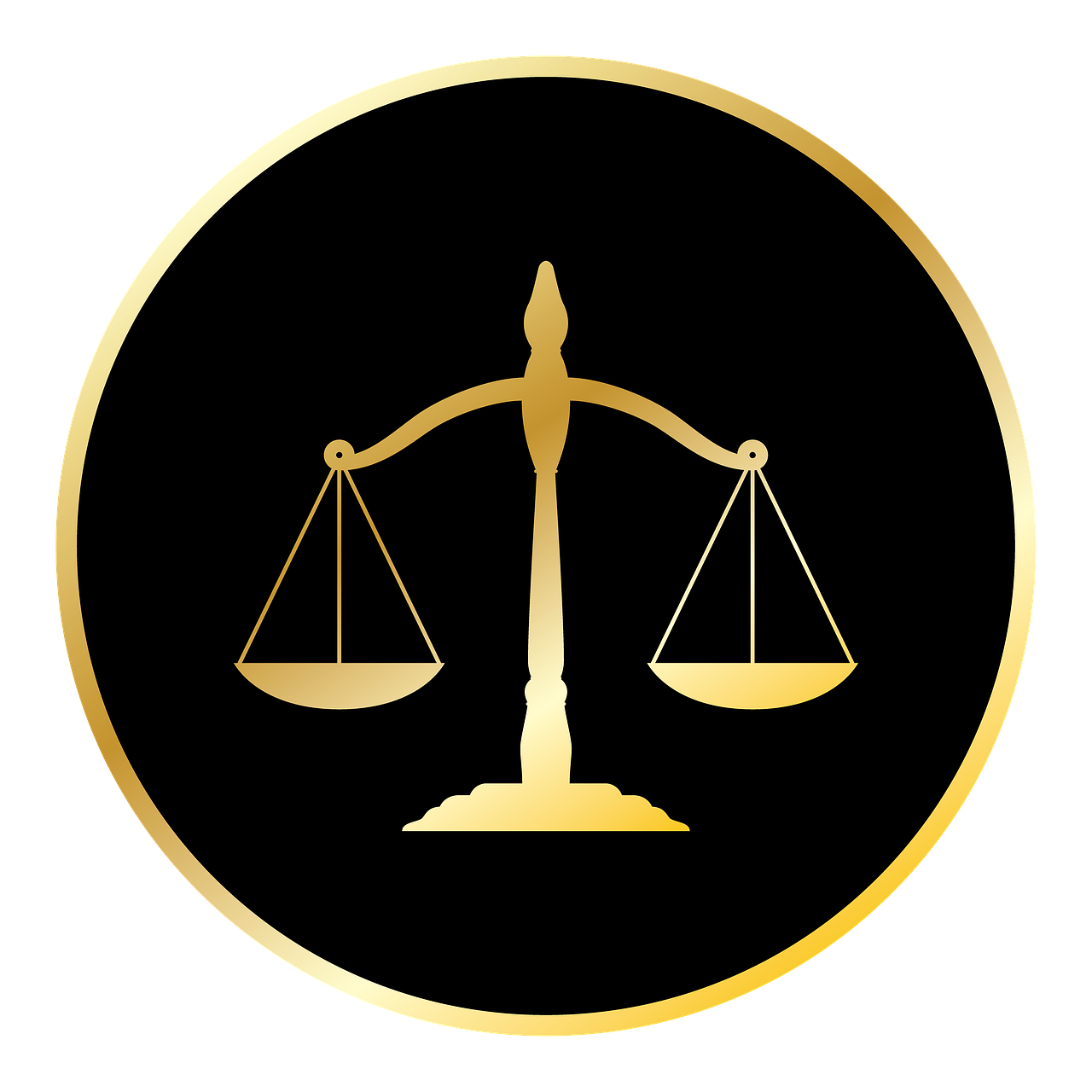Are you facing financial difficulties in Inverness? Is bankruptcy starting to seem like the only way out? Navigating the complexities of bankruptcy law inverness can be overwhelming, but fear not! This comprehensive guide will walk you through the ins and outs of bankruptcy in Inverness, offering you the financial relief you need.
In this article, we will break down the different types of bankruptcy, such as Chapter 7 and Chapter 13, and explain how they can help you resolve your debts. We’ll also discuss the eligibility requirements and the process involved in filing for bankruptcy.
Understanding bankruptcy law inverness is crucial to making informed financial decisions, and our goal is to equip you with the knowledge necessary to protect your interests. From dealing with creditors to managing your assets, this guide will serve as your roadmap to finding the relief you deserve.
Don’t let the uncertainty of bankruptcy hold you back from taking control of your financial situation. Let us guide you through the maze of bankruptcy law in Inverness and pave the way for a brighter financial future.
Understanding Bankruptcy Law
Bankruptcy law is a legal framework designed to provide individuals and businesses with a fresh start when burdened by overwhelming debt. It allows debtors to eliminate or restructure their debts while protecting their assets. Inverness, like other places, has its own bankruptcy laws, which govern the process and determine the options available to residents facing financial difficulties.
Bankruptcy law aims to strike a balance between the rights of debtors and creditors. It provides debtors with relief from their debts while ensuring that creditors receive fair treatment and have a chance to recover a portion of what they are owed. By understanding bankruptcy law Schaumburg, you can make informed decisions about your financial future and take steps towards regaining control over your finances.
Types of Bankruptcy
Inverness residents have two primary options when it comes to bankruptcy: Chapter 7 and Chapter 13. Each type has its own advantages and considerations, so it’s important to understand the key differences between them.
Chapter 7 bankruptcy, also known as liquidation bankruptcy, involves the sale of non-exempt assets to repay creditors. This process typically lasts around three to six months and allows individuals to discharge most of their unsecured debts, such as credit card debt and medical bills. However, it’s important to note that not all debts can be discharged through Chapter 7 bankruptcy, such as student loans and child support payments.
On the other hand, Chapter 13 bankruptcy, also known as reorganization bankruptcy, involves creating a repayment plan to pay off debts over a three to five-year period. This type of bankruptcy is suitable for individuals with a steady income who want to keep their assets, such as their home or car. It allows debtors to catch up on missed mortgage or car payments while still maintaining ownership.
It’s crucial to carefully assess your financial situation and consult with a bankruptcy attorney to determine the most appropriate type of bankruptcy for your needs. They can help you understand the implications of each option and guide you through the decision-making process.
The Bankruptcy Process
Filing for bankruptcy in Inverness involves a series of steps that must be followed to ensure a smooth and successful process. Understanding the bankruptcy process can help alleviate some of the stress and uncertainty associated with it.
The first step in the bankruptcy process is to gather and organize all relevant financial documents, such as tax returns, bank statements, and a list of assets and debts. This information will be used to complete the bankruptcy petition, which is the formal document that initiates the bankruptcy case.
Once the petition is filed with the bankruptcy court, an automatic stay goes into effect. This stay prohibits creditors from taking any further collection actions against you, providing immediate relief from harassment and legal actions. The court will then appoint a bankruptcy trustee to oversee your case and review your financial situation.
In Chapter 7 bankruptcy, the trustee will evaluate your non-exempt assets and determine which ones can be liquidated to repay creditors. You will be required to attend a meeting of creditors, where the trustee and any interested creditors can ask you questions about your financial affairs.
In Chapter 13 bankruptcy, the trustee will review your proposed repayment plan and work with you to make any necessary adjustments. Once the court approves your plan, you will make regular payments to the trustee, who will distribute the funds to your creditors.
Throughout the bankruptcy process, it’s essential to comply with all court requirements and deadlines. Failure to do so could result in the dismissal of your case or the loss of certain protections. Working with a bankruptcy attorney can help ensure that you navigate the process correctly and avoid any pitfalls.
Eligibility for Bankruptcy
Not everyone is eligible to file for bankruptcy in Inverness. The eligibility criteria vary depending on the type of bankruptcy you wish to pursue.
To qualify for Chapter 7 bankruptcy, you must pass the means test. This test compares your income to the median income in Inverness to determine if you have the means to repay your debts. If your income falls below the median, you are likely eligible for Chapter 7 bankruptcy. However, if your income exceeds the median, you may still qualify based on your disposable income and other factors.
For Chapter 13 bankruptcy, there are no income restrictions. However, you must have a regular income that allows you to make monthly payments under a repayment plan. Additionally, your total secured and unsecured debts must be within the limits set by bankruptcy law.
It’s important to note that even if you meet the eligibility requirements, bankruptcy may not always be the best solution for your financial situation. Consulting with a bankruptcy attorney will help you assess your options and determine the most appropriate course of action.
Hiring a Bankruptcy Attorney
Navigating the intricacies of bankruptcy law inverness can be challenging on your own. Hiring a bankruptcy attorney in Inverness can provide you with the expertise and guidance needed to navigate the process effectively.
A bankruptcy attorney will assess your financial situation, explain the available options, and help you determine the best course of action. They will assist you in preparing and filing the necessary paperwork, ensuring that you meet all legal requirements. Additionally, they will represent you in court and negotiate with creditors on your behalf.
When selecting a bankruptcy attorney, it’s important to choose someone with experience and a track record of success in handling bankruptcy cases. They should have a thorough understanding of Inverness bankruptcy laws and be familiar with the local bankruptcy court procedures.
Bankruptcy Alternatives
While bankruptcy can offer significant relief for individuals facing financial difficulties, it’s not always the only solution. There are alternatives to bankruptcy that may be more suitable depending on your circumstances.
One alternative is debt consolidation, which involves combining multiple debts into a single loan with a lower interest rate. This can make your monthly payments more manageable and allow you to pay off your debts faster. Debt consolidation can be done through a personal loan, balance transfer credit card, or a debt management program.
Another alternative is debt settlement, which involves negotiating with creditors to reduce the total amount owed. This option is typically pursued by individuals who are unable to make regular payments but have a lump sum of money available to settle their debts. Debt settlement can have a negative impact on your credit score and may result in tax consequences.
Before deciding on bankruptcy or any alternative, it’s important to carefully consider your financial situation and consult with a professional. They can help you evaluate the pros and cons of each option and determine the best path forward for your specific circumstances.
Navigating bankruptcy law in Inverness can be a complex and overwhelming process. However, with the right knowledge and guidance, you can find the financial relief you need. Understanding the different types of bankruptcy, the eligibility requirements, and the bankruptcy process is essential to making informed decisions about your financial future.
Remember, bankruptcy is not the end of the road but rather a fresh start. With careful planning and the assistance of a bankruptcy attorney, you can pave the way for a brighter financial future. Don’t let the fear of bankruptcy hold you back from taking control of your financial situation. Take the first step towards financial relief today.






